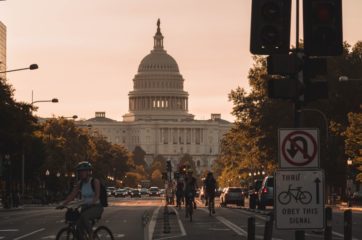The Federal Bureau of Ocean Energy Management (BOEM) is holding a public meeting this Wednesday, January 24th from 3-7pm at the Hyatt Regency in Boston to discuss their recently announced offshore drilling plan. The plan’s current draft opens up over 90% of coastal waters to offshore drilling (up from the current 6%) and has drawn immense criticism from local officials all over the country for compromising the ocean-dependent economies of coastal states and expanding the fossil fuel industry.
These meetings, which follow an open-house format, will be taking place throughout the country in the coming months. Participants can ask questions, and submit written comments. The arguments against offshore drilling in New England are staggering — this is a chance for local residents and businesses to voice their stark opposition.
Opening up New England waters to offshore drilling would compromise the region’s most vital economic resource — Massachusetts alone generates over $6 billion per year from the direct ocean economy. Ocean and coastal industries, such as tourism, fishing, and recreation, generate over $17.5 billion annually in New England. “Opening up oil and gas lease sales off the coast of Massachusetts would not only devastate the marine environment, it would also erode our economy, our way of life, and our coastal communities,” claims Melissa Gates, northeast regional manager for the Surfrider Foundation. “The economic opportunities and jobs created by industries that depend on healthy coastal environment are twelve times greater than those developed through offshore oil and gas development.”
This plan has already generated a swell of resistance from coastal communities, environmental and industry groups, and more than 1200 elected officials at all levels. A bipartisan group of New England US Senators have introduced the New England Coastal Protection Act to block offshore drilling off the coasts of New England. According to an administration official, Gov. Baker plans to send a “request to be excluded” from the drilling plan during the current public comment period. Last year, both the Governor and Attorney General submitted comments in opposition to the plan, which were included in BOEM’s most recent draft.
This resistance building throughout the country could call into question what is currently the most expansive offshore drilling plan since the Reagan administration. “I can’t think of anything dumber than reopening the debate over offshore drilling. We have fought successfully to stop it since I was governor,” asserts former governor Michael Dukakis. “More production of fossil fuels at a time when clean energy is growing by leaps and bounds makes no sense at all.” Massachusetts has not had any offshore drilling since 1983, when the former governor used the courts to protect the Georges Bank from a federal drilling plan. The new draft, according to Environment Massachusetts, could once again include the Georges Bank, which currently serves as a vital wildlife region for local fishing industries.
However, the BOEM has shown political vulnerability — after meeting with Florida Governor Rick Scott last week, Ryan Zinke, the Secretary of Interior, announced last week that Florida would be exempt from the plan due to their vital coastal tourist industry. Since that announcement, a similar cry for exemption has been building along the Atlantic States. Whether the Northeast can achieve such exemptions remains unknown, but legal and political experts identify Florida’s rushed exemption as opening a new can of worms. If the Interior Department is not able to clarify why other coastal states are different than Florida, the plan may become vulnerable to legal claims of arbitrary design.
In response to this move by the Trump administration, CABA is working closely with our partners to respond. Our job is to send a clear message of opposition to BOEM. The consequences of such a plan to our local economy and global climate are too severe to allow. If there’s anything Boston residents are proud of (other than sports), it’s our seafood.
For more information on the event, you can check out Surfrider’s facebook event page. If you cannot attend the meeting, the BOEM meetings page offers a virtual meeting room to explore their material and submit comments.
 JONAH KURMAN-FABER COMMUNICATIONS AND POLICY FELLOW
JONAH KURMAN-FABER COMMUNICATIONS AND POLICY FELLOW
Jonah is currently a Masters candidate of Sociology at Northeastern University, where he completed his Bachelors. He developed an appreciation for the environment at a young age, growing up on Lake Massapoag in Sharon, MA. He recently held multiple positions at Oxfam America as a grasstops and grassroots organizer, prior to which he served as an outreach coordinator for the Mass Save program. His academic expertise includes renewable energy policy, urban development, and gerrymandering. In his spare time, Jonah enjoys playing/coaching Ultimate Frisbee, traveling, and eating food he can’t afford.








